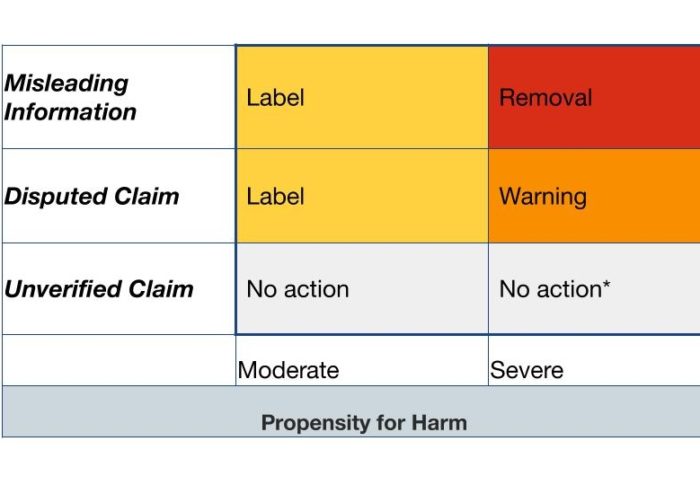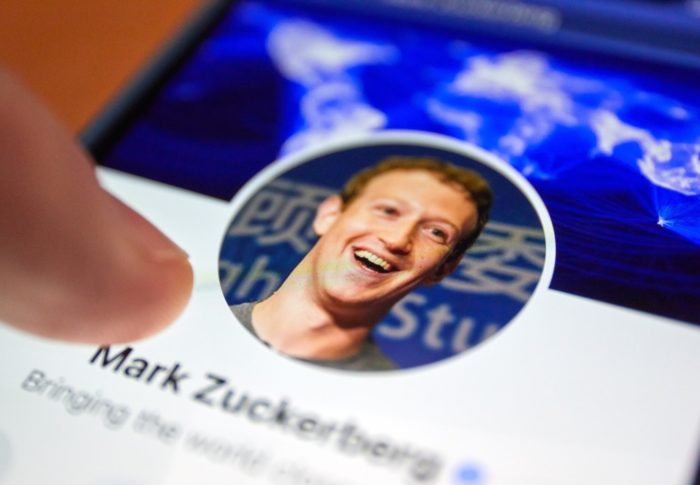Good Monday morning. It’s June 1st, the start of Pride Month. People are raw right now between a pandemic, protests over racial inequality, and forty million lost jobs. We’re going to have to take care of each other. Try really hard to do that this week.
We’ve created new pricing during this crisis for nonprofits and small businesses that need help maintaining their online presence on websites, email, and social media.
Today’s Spotlight is 1,304 words, about a 4 1/2 minute read.
1. News to Know Now
a. We told you for months and most recently on May 19, that “Twitter is cracking down on misinformation and deliberate disinformation. The company says it will remove tweets that are deliberately misleading and that have a severe propensity for harm even if that content is sent by the president.”
Twitter did just that early in the week after the president posted an inaccurate two-part tweet about voting fraud. The company left the tweets in place but labeled them as “potentially misleading.” The president retaliated by issuing an executive order filled with complaints about Big Tech and a request that the FCC review the Communications Decency Act provisions that protect tech companies from liability for what users post on their systems. A consensus among industry legal analysts seems to have formed that suggests legislative rather than executive action is needed to accomplish what the president wants.
Later in the week Twitter labeled, but did not remove, a post by the president that it said “glorified violence.” Twitter’s labels were among the least punitive action that the private company could have taken. Twitter, Facebook, or any other company can remove anyone’s account or posts as they have shown in the past when taking action against people posting legal but inaccurate information.
b. Facebook continues adding features to attract small businesses. The company announced that its new Shops program is available on Facebook, Instagram, or WhatsApp to any entity with a business profile. Ten percent of U.S. small businesses remain closed today due to the COVID-19 pandemic.
c. Facebook also launched Venue, “a second screen” mobile app for live events. Venue’s goal will be to directly compete with Twitter to provide social media coverage of live events from well known personalities. Tech Crunch has coverage including screenshots.
2. COVID-19 Online Resources and News
Great Trackers
Johns Hopkins – added state level and other data.
Covidly — flexible data and charting tools
Our World in Data — Oxford nonprofit
ProPublica Reopening Tracker – State by state measures – truly excellent
DC Metro Tracker spreadsheet by WTOP editor Alejandro Alvarez
Note: if you’re a DC area resident on Twitter, follow Alvarez there for excellent local info (@aletweetsnews)
Tech News
Google’s AR tool helps you measure two meters to maintain proper social distancing – read at The Verge
Microsoft News just cut dozens of editorial workers as it shifts to an AI-driven system of picking stories – read at Business Insider
Nearly Half Of The Twitter Accounts Discussing ‘Reopening America’ May Be Bots – read at Carnegie Mellon
One of the first contact-tracing apps violates its own privacy policy – read at The Washington Post
Tracking COVID-19 Excess Deaths Across Countries (updated) – read at The Economist
WATCH: 9 Local TV Stations Pushed the Same Amazon-Scripted Segment About COVID-19 – read at Courier
3. Search Engine Optimization News
Google has created a new report called “Core Web Vitals” that it says provides metrics around areas that it considers “critical to all web experiences.” In nearly twenty years of running websites, I’ve learned to pay attention to what Google does rather than what they say.
These metrics are outgrowths of Google’s focus on speed. As SEJ’s Matt Southern reported, “There’s more to keeping users happy than having a site that loads fast.”
Google is singling out these three elements:
Cumulative Layout Shift — this measures if a page loads something late that causes the whole display to shift.
First Input Delay — This is how fast the website responds in a way that the user can see.
Largest Contentful Paint — That is the measure of how long it takes the main section of the page’s content to load. Yes, it is called Contentful.
There are dozens of significant factors that affect an organization’s website visibility, and page speed is among the most important. These are not the replacement for page speed metrics, but a way to subdivide the metric and to measure if websites use less desirable fixes like loading things late that cause the display to move.
Why should you care? As a business leader, your team should already know about and have plans to optimize these factors. As a user, you’ll see the continuing and increasing focus on usability as it relates to website speed.
4. Also in the Spotlight — NSA Built a Social Network About You. And They Update It.
Award winning journalist Barton Gellman’s new book is “Dark Mirror: Edward Snowden and the American Surveillance State.” Wired has published a 3,600 word excerpt well worth your time.
This section explains how Gellman learned that the NSA didn’t simply capture the data of who called whom, when, and for how long. Instead, the data was continually fed through software that mapped each connection at the first, second, and even more remote levels.
Read Gellman on “contact chaining.”
5. Following Up: Walmart Discontinues Jet
Walmart saw Jet.com as its jump start to challenge Amazon in the e-commerce space when it bought the company four years ago for $3 billion. We’ve talked about Walmart’s other acquisitions such as ModCloth and Bonobos also failing to help the company much like Amazon acquiring Zappos in 2009.
Tech Crunch has coverage here.
6. Debugging: Minneapolis Police Station Fire
Enough misinformation circulated online about the police station fire in Minneapolis that Reuters felt compelled to issue a fact check. The city’s Third Precinct was indeed set on fire, but the building often shown engulfed in flames was an apartment building still under construction.
Reuters has pictures of the construction site and police station, plus y’know, facts.
7. ProTip: New Chrome Features
If your web browser is called Google Chrome, you can access new safe browsing settings and the ability to group multiple open tabs.
C|Net’s Iyaz Akhtar has a great five minute explainer video demonstrating them.
8. Great Data: Coronavirus Data Visualization
By now, you and everyone that you know is an expert on the difference between linear and logarithmic trendlines because we’ve all seen enough of them this year. One thing that we’re all going to do in the future is make data beautiful because plenty of others are setting the bar high.
French brand marketers BRIGHT took coronavirus data that you know well and gave it a great visualization. You should have access to people who can create at this level.
Move to the right after each animation loads.
Screening Room: Ryan Reynolds & Mint
10. Coffee Break: Can’t Unsee
This fun graphic design quiz gets progressively harder as you play. You’ll see side-by-side designs and pick which one “is most correct.”





